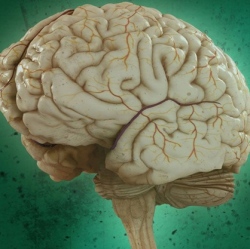
In rhesus monkey families, just as in their human cousins, anxious parents are more likely to have anxious offspring. And a new study in an extended family of monkeys provides important insights into how the risk of developing anxiety and depression is passed from parents to children.
The study from the Department of Psychiatry and the HealthEmotions Research Institute at the University of Wisconsin-Madison shows how an over-active brain circuit involving three brain areas inherited from generation to generation may set the stage for developing anxiety and depressive disorders.
The study is being published today in the Proceedings of the National Academy of Sciences (PNAS). It shows that elevated activity in this prefrontal- limbic -midbrain circuit is likely involved in mediating the in-born risk for extreme anxiety, anxious temperament that can be observed in early childhood.
“Over-activity of these three brain regions are inherited brain alterations that are directly linked to the later life risk to develop anxiety and depression,” says senior author Dr. Ned Kalin, chair of psychiatry at the UW School of Medicine and Public Health. “This is a big step in understanding the neural underpinnings of inherited anxiety and begins to give us more selective targets for treatment.”
